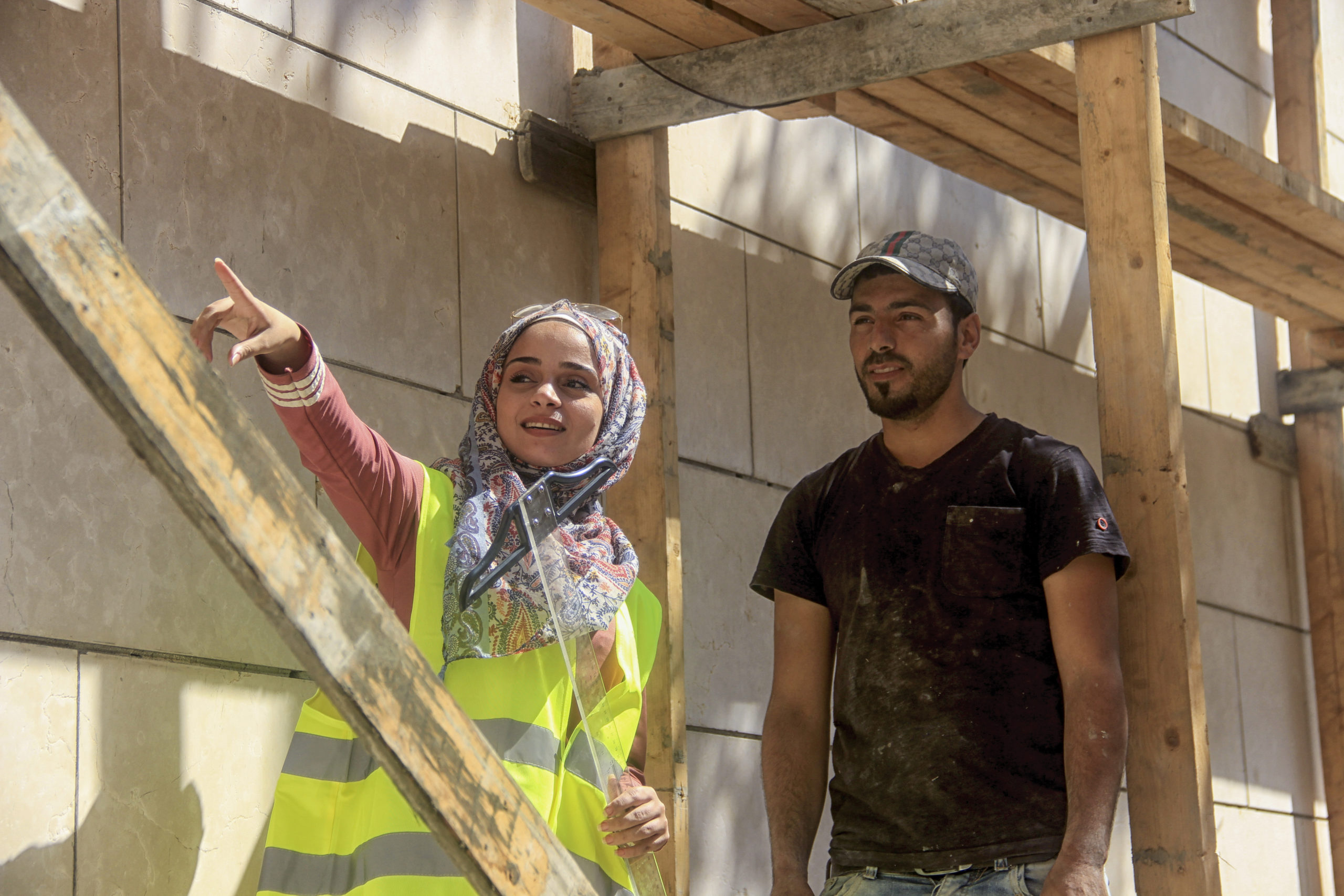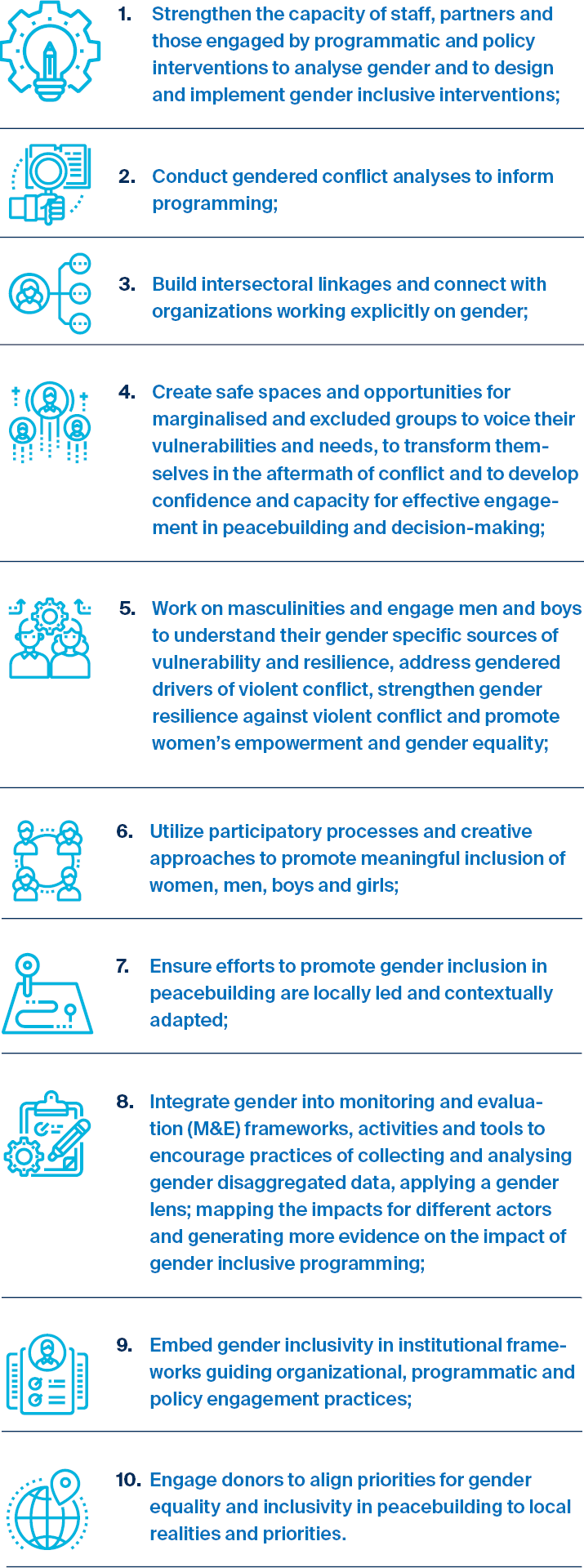
Why does gender matter in peacebuilding? Gender disparities form arguably one of the most profound and pervasive sources of exclusion globally. Conflicts, and consequently peace, are profoundly influenced by and impact gender. Better understanding the gendered dynamics of conflict and implementing gender inclusive programming are critical to ensuring that peacebuilding efforts are more effective and sustainable.
In run-up to the 20th anniversary of the UN Security Council´s landmark resolution 1325 on women, peace and security, we are pleased to share the latest edition of Interpeace’s Peacebuilding in Practice paper, entitled “Ten Foundations for Gender Inclusive Peacebuilding Practice”. The paper presents lessons learned and recommendations from Interpeace’s experience and institutional reflection on how to develop, implement and evaluate gender inclusive programming. It aims to enable practitioners and policy-makers to better understand the gendered dynamics of conflict and to develop effective strategies that leverage gender inclusive programming to improve peacebuilding practice while advancing gender equality.
Read paper in English here.
Read paper in French here.
The following Ten Foundations for Gender Inclusive Peacebuilding Practice were identified through a series of programmatic and institutional reflections.

Interpeace's Peacebuilding in Practice papers are designed to showcase insights from our programmatic work, and to contribute to knowledge sharing and learning within the organization and the wider peacebuilding sector. Previous Peacebuilding in Practice papers are available here.